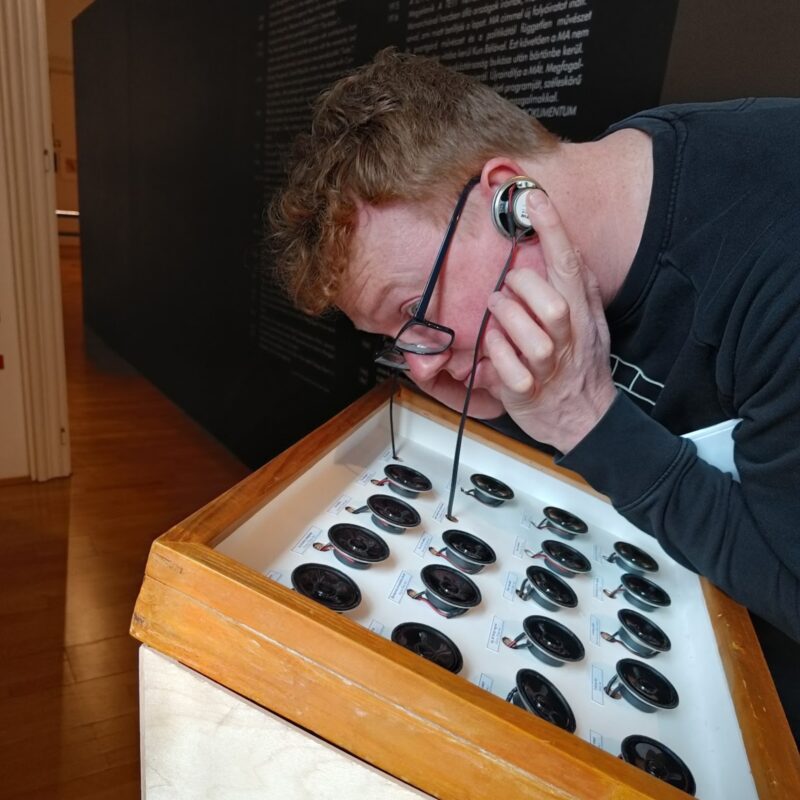Scholarly Podcasting is Changing Academia
by Ian M. Cook
Editor-in-Chief, Allegra Lab & Podcasting Scholar for Hire, Budapest, Hungary
FreshEd is a great example of how podcasting is changing the way scholars think about their work. As I know from working with scholars who want to make podcasts, and from my book where I interviewed 101 scholars who already were making them, academic podcasting opens up processes of knowledge creation, frees scholarship from for-profit publishers, and suggests new ways of speaking to publics.
Podcasts, by their nature, are serial affairs. The types of knowledge which are discussed or even created in academic podcasts often take a different form than when they are written. The written word in academia, for the most part, is constructed in a way that is final. Whether in the term paper, the journal article, or the book, we make our arguments as tight as can be so that they can be defended against our reviewers or professors. But this isn’t how knowledge is produced in actuality. Rather, it’s produced in an ongoing, open, dialogical form with peers, research data, and other scholarly work.
In celebrating FreshEd’s 300th show, Will Brehm talks with Greg Skutches in an episode titled ‘Carnival of Learning’ which, though not addressing podcasting, gets to the heart of what’s great about open ongoing knowledge creation, and how current structures of learning inhibit it. Taking issue with the competitive nature of academia, where students and faculty are “so busy proving themselves that there’s no ability to improve themselves”, he speaks about the beauty of failure and what we can learn from that. Scholarly podcasting, because it does a lot of thinking out loud, because it allows for changes of opinion or explaining of statements, and because it’s never really finished, takes the beautiful and emergent form of knowledge creation from the classroom and into the world.
And podcasting can do this because podcasts are free to listen to. Apart from a few superstars getting rich from closed exclusive podcasts for Spotify, most podcasts are subscribed to by open RSS feeds. This is politically pertinent because so much of academic scholarship is behind paywalls, whilst some ‘open access’ journals charge the authors silly money to publish with them. The unsustainable nature of this is something discussed back in episode 118 with Wilhelm Widmark, specifically focusing on why Swedish universities cancelled their deal with academic publishing behemoth Elsevier. As Wilhelm argues, it is academics who need to change the system. Though it is hard with so many people chasing prestige points to get jobs or promotions, scholarly podcasting points to a different future for scholars: one where scholarship is free and accessible for all.
To be so, however, scholars must learn how to write and speak well. Considering we spend a lot of our time talking, it is amazing how bad some of us are at it. It’s not really our fault; the structures of academic presentations and conferences (where people ‘give a paper’) don’t really lend themselves to engaged conversational styles. And yet, podcasting can offer us plenty of ways to think about how to make our research engaging. In the cross-over episode with Bakom Bokhyllan, Will Brehm is part of a conversation with Gia Destouni and Cecilia Burman all about Science Communication. In the episode, they speak about the power of storytelling, but also how academic structures hold back public-facing activities: scholars don’t have time, and such work isn’t always properly recognised within strict merit systems.
There’s every chance, of course, that scholarly podcasting gets sucked into the worst aspects of higher education (there are some terrible podcasts by ego-tripping rectors out there), but there are also plenty of reasons to believe that it won’t. At the moment, it is scholars who are excited by the curious, insurgent nature of the medium who are creating the best podcasts out there, or who are eager to learn the craft of scholarly podcasting.
December 1, 2023






